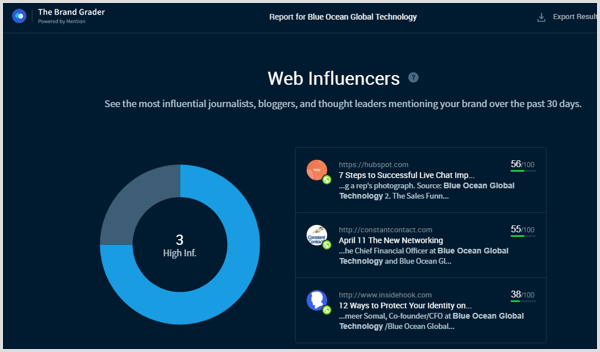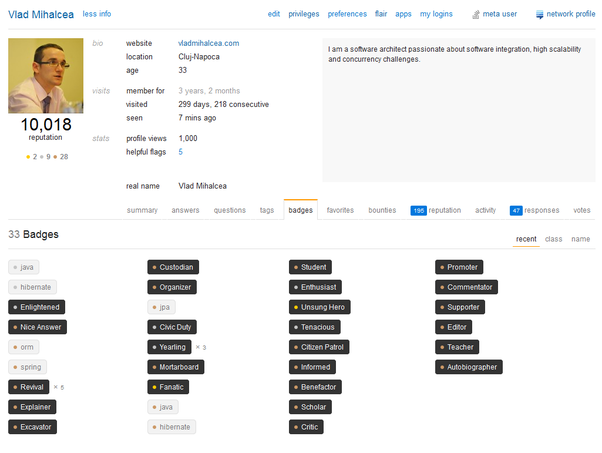
When you find yourself with a negative online reputation, a bad first impression, especially on potential employers, is a strong possibility. If your brand is damaged, your reputation can also be hurt with current employers. The good news is that you can examine your online image and improve it by following these steps:
1. Limit Those Who Can See Your Posts
Some of the most common issues people face when looking for a new job are social media related according to according to Exceptional Resume Writers. There are privacy settings in your social media accounts. Use them to limit who can see the content you share. For example, Facebook has a feature where you can choose “Everyone,” “Friends of Friends,” and “Friends Only.” When you choose, always choose “Friends Only.” When you do this, employers can’t see what you post.
Nevertheless, if other people have posted about you, those posts will still be visible. Therefore, ask people that are in your social networks to untag you or to remove any unflattering or inappropriate content about you.
2. Always Think Before You Post

Online Reputation Management: A Guide for Social Media Marketers
If you post something that you will later regret, you are no longer in control. Therefore, always think before you post. That’s the best way to ensure that your online reputation is spotless. Also, remember that in the 21st-century, screenshots of old posts happen often. Therefore, even if you decide to delete a post, it could still be present as a screenshot on another person’s computer.
Before you hit “post,” ask yourself the following:
A. Is this an item that is okay to share in a work setting?
Let’s say you’re in an office setting, if everyone saw your post, would you be comfortable with that? Fine to share? Pics of your baby niece’s Halloween costume consisting of a pumpkin, for example. Not fine to share? A pic of you in a naughty Halloween police officer costume, for example.
B. Is it a complaint about your job?
You want to stay away from bad-mouthing your employment. This includes any sites where you are promised anonymity for doing it. Why? You may, without knowing it, share information in the complaint that reveals who you are. When you complain about your job, it shows that you’re not a team player. And it shows that you don’t value your job.
C. Will my company’s reputation be harmed?
If you are employed, you’re likely connected to your company’s name online. This could be on your company website or the profiles of your personal social networking. Therefore, the activity you do online reflects on your employer. Don’t share content that harm’s your company’s image.
3. Remove Content That Is Negative
Negative content comes in two types – content you post and content posted about you by someone else. Going through your social media posts and removing problematic posts is somewhat easy, but it becomes much harder to get others to remove such content. In fact, normally, websites are not under a legal obligation to delete content simply because you want them to. This is why you often have to bury Google search results with positive content.
That said, if the website’s Terms of Service is violated or meets the removal policy of Google, the content you want to be removed has a better chance of getting removed. Full instructions on how to remove content that is negative is found in the section – How to Remove an Article from the Internet.
4. Incorrect Address Information
If you find information in search results that shows that your name is incorrect (another person has the same name, for example) you should indicate this on your application. This way a company you wish to work with won’t judge you on the missteps of someone else. In addition, there are steps you can take to fix these errors so that they don’t come up in any future pre-employment checks. Full instructions are available in the section – How to Correct Errors in Employment Background Checks.
5. Build Your Brand

How to Build a Personal Brand in 5 Steps (and Why Everyone Messes Up on Number 1)
How do you repair a negative online reputation? You lower the negative items in your Google search results that apply to your content. This content is created by you, and therefore, has a tendency to rank highly when search results are for your name. Therefore, it’s important to publish and update your content regularly.
Do you need personalized advice on your content situation?
Ways to create content are:
A. Get involved in industry groups on social media.
Always comment and post frequently. This shows that you are informed or engaged with your industry. You will also grow your professional network when you join these discussions.
B. Begin a blog.
Develop a professional-sounding domain name, such as FirstnameLastname.com. Then use your industry knowledge to write blog posts. Writing about a hobby or other innocuous content can showcase your talents, as long as it is a good reflection on you.
C. Fill out your LinkedIn profile.
LinkedIn, believe it or not, often ranks highly in an individual’s search results. Therefore, it is important to be active on the network and to take advantage of LinkedIn features. See Make Your LinkedIn Profile an Online Reputation Management Tool.
6. Optimize Your Resume Content

Is it okay to mention Stack Overflow reputation points in my resume?
You have skills and accomplishments. Therefore, you want your employers who search for you to find that content. How do you do this? One strong way is to make sure your resume is not hard to find online and is easy to read.
Here are ways to do this:
A. Optimize your resume for the role you want.
Be sure to focus on certain words in the job you seek and for the industry you wish to be in. As an example, let’s say you’re a CPA and you’re seeking an accountant’s role. You’ll want to highlight your education and your experience as an accountant. Be sure to mention your ideal role, and the industry you want that role to be, in the opening of your resume. Be sure the words “accountant” and “financial” show up often.
B. Post the resume online.
You’ve got everything the way you want. Now, get it out there. LinkedIn is a good place to start. It has a resume function that lets you redraft and update your work experience, and all of this information is searchable. Making your digital resume easy to find is the goal.
C. Add links to your content
Your digital resume should include links to relevant information. For an example, let’s say a national magazine covered a project you were the head of. You’ll want to have a link to the information for current and future employers.




